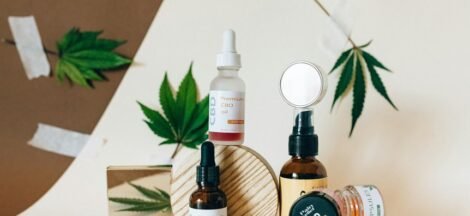CBD oil has become one of the most popular supplements in recent years. It’s been touted for its potential health benefits, from reducing anxiety to easing pain and inflammation. But as with any new trend, there are still plenty of questions swirling around about what exactly CBD oil is and how it works. One of the biggest sources of confusion? Whether or not CBD oil contains THC, the psychoactive compound found in marijuana that gets you high. In this blog post, we’ll clear up some common misconceptions and answer the question: does CBD oil have THC? So let’s dive in!
What is CBD oil?
CBD (short for cannabidiol) is a natural compound found in the hemp plant. Unlike THC, CBD won’t get you high – instead, it’s been shown to have potential therapeutic benefits for a range of conditions. CBD oil is made by extracting CBD from the hemp plant and mixing it with a carrier oil like coconut or olive oil.
One of the reasons that people are turning to CBD oil is because of its potential anti-inflammatory properties. Chronic inflammation has been linked to all sorts of health problems, from arthritis to heart disease. By reducing inflammation in the body, some researchers believe that CBD may be able to help alleviate symptoms associated with these conditions.
Another area where scientists are exploring the potential benefits of CBD? Anxiety and depression. Studies have suggested that taking CBD may be able to help reduce feelings of anxiety and improve mood – though more research is needed before we can say for sure how effective it really is.
All in all, while there’s still much we don’t know about this fascinating compound, there’s no denying that interest in using CBD products continues to grow!
What is THC?
THC, or tetrahydrocannabinol, is the primary psychoactive component found in cannabis plants. It’s responsible for producing the “high” feeling often associated with using marijuana. THC works by binding to specific receptors in the brain that are known as cannabinoid receptors.
When THC binds to these receptors, it activates a series of chemical reactions that ultimately lead to changes in mood, perception and cognition. This can result in feelings of euphoria, relaxation and altered sensory experiences.
THC levels can vary greatly depending on the type of cannabis plant being used. Some strains may have high levels of THC while others may contain very little or none at all.
While some people use marijuana recreationally for its psychoactive effects, others use it medicinally for its pain-relieving properties. Due to its potential for abuse and negative side effects such as impaired judgement and memory loss, however, THC remains a controversial substance that is heavily regulated by governments around the world.
Does CBD oil have THC?
CBD oil has gained popularity in recent years as a natural remedy for various health issues. However, many people are still confused about whether CBD oil contains THC or not. To clear the confusion, let’s first understand what these two compounds are.
THC, also known as tetrahydrocannabinol, is the psychoactive compound found in marijuana that causes a “high” sensation. On the other hand, CBD or cannabidiol is another type of cannabinoid found in hemp plants and does not produce any intoxicating effects.
While both THC and CBD come from cannabis plants, they have different effects on the body. Unlike THC, CBD does not cause any psychoactive effects and has been researched extensively for its potential therapeutic benefits.
So when it comes to answering whether CBD oil has THC or not – it depends on the source of extraction. Full-spectrum CBD oils may contain trace amounts of THC (less than 0.3%), while broad-spectrum and isolate oils have zero traces of this compound.
It’s essential to check the labels carefully before purchasing any CBD product to ensure that you know what you’re getting into – especially if your job requires regular drug testing where even minimal levels can show up positive.
Understanding how much THC your chosen product contains can make all the difference between feeling calm and relaxed or experiencing unwanted side-effects like dizziness or anxiety – so always do your research before buying!
Is CBD oil legal?
One of the biggest concerns for people interested in using CBD oil is its legal status. While CBD is derived from cannabis, it doesn’t necessarily have the psychoactive effects that THC has. In fact, many states have legalized the use of CBD products with very low levels of THC.
The legality of CBD oil depends on where you live and how it’s sourced. In the United States, hemp-derived CBD products are legal under federal law as long as they contain less than 0.3% THC. However, marijuana-derived CBD is only legal in certain states where marijuana is also legal.
It’s important to do your research before purchasing any CBD product to ensure that it aligns with your local laws and regulations. Additionally, some employers may still have a zero-tolerance drug policy even if your state has legalized certain types of cannabis products.
While the legality of CBD can be confusing depending on your location and source material, there are plenty of options available that comply with federal guidelines and state regulations.
Conclusion
To sum it up, CBD oil and THC may come from the same plant, but they have different properties and effects. While THC is known for its psychoactive properties that cause a “high,” CBD oil does not produce these effects. Therefore, if you’re looking to experience relief without the mind-altering effects of marijuana, then pure CBD oil might be your best option.
It’s also important to note that while some types of CBD oils contain trace amounts of THC due to extraction methods or legal requirements in certain states, most high-quality CBD products are extensively tested and labeled accurately.
Always make sure to check local laws before purchasing any cannabis-derived products as regulations can vary between states. With proper research and knowledge on what you’re buying, you can confidently incorporate CBD into your wellness routine knowing exactly what’s in it.





 The Ultimate Guide to Finding the Best Way to Take CBD
The Ultimate Guide to Finding the Best Way to Take CBD